Mosul battle: Iraqi army 'besieges' Christian town of Qaraqosh
- Published
Defence correspondent Jonathan Beale is with Iraqi army forces on the road to Mosul
Iraq's army is besieging the Christian town of Qaraqosh, officials say, as an offensive to retake the city of Mosul from so-called Islamic State continues.
Thousands of Christians fled Qaraqosh, 32km (20 miles) south-east of Mosul, when jihadists seized it two years ago.
An Iraqi general said earlier reports the town had been retaken were untrue, with IS snipers slowing progress.
The Iraqi army and federal police are also besieging nearby al-Shura as they advance towards the south of Mosul.
The attack will resume on Wednesday morning.
Meanwhile, the International Committee of the Red Cross appealed to all sides in the battle to show their "humanity".
Its director of operations for the Middle East, Robert Mardini, told the BBC that meant not targeting civilians, avoiding the use of heavy weapons in densely populated areas, and giving safe passage to those who wanted to leave.
"The world is watching," Mr Mardini warned.
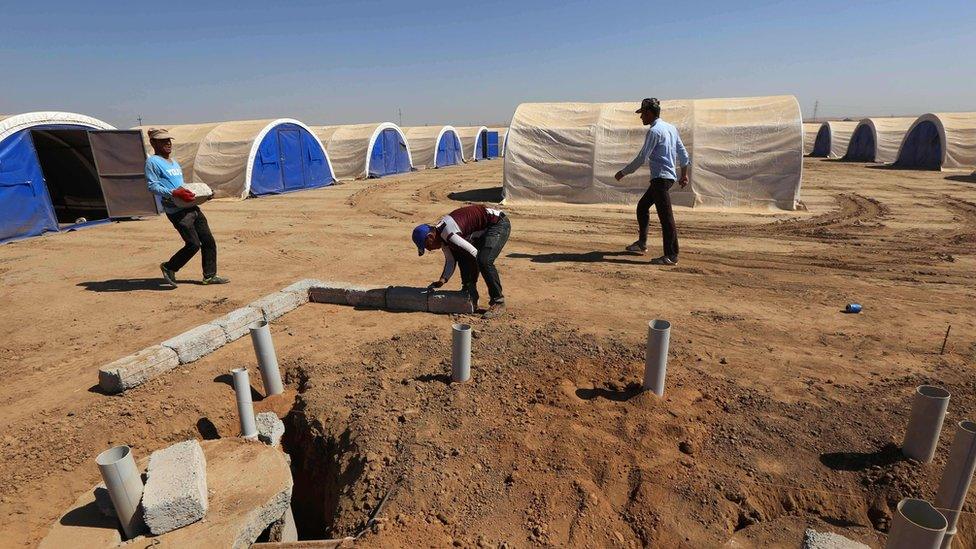
The UN believes as many as 200,000 civilians may flee Mosul in the next few weeks
An International Organization for Migration representative said it feared IS militants would use the estimated 1.5 million civilians in Mosul as human shields, or even deploy chemical weapons.
There are also concerns that Shia Muslim paramilitary forces involved in the offensive may seek revenge on Mosul's predominantly Sunni Arab population.
Aid agencies are also scrambling to prepare emergency shelters for the hundreds of thousands of people expected to try to flee Mosul as the fighting approaches.
A coalition of about 30,000 Iraqi security personnel, Kurdish fighters, Sunni Arab tribesmen, and Shia paramilitary forces launched the offensive on Mosul early on Monday with the support of US-led coalition air strikes and special forces.
By nightfall they were "ahead of schedule", a Pentagon spokesman said.
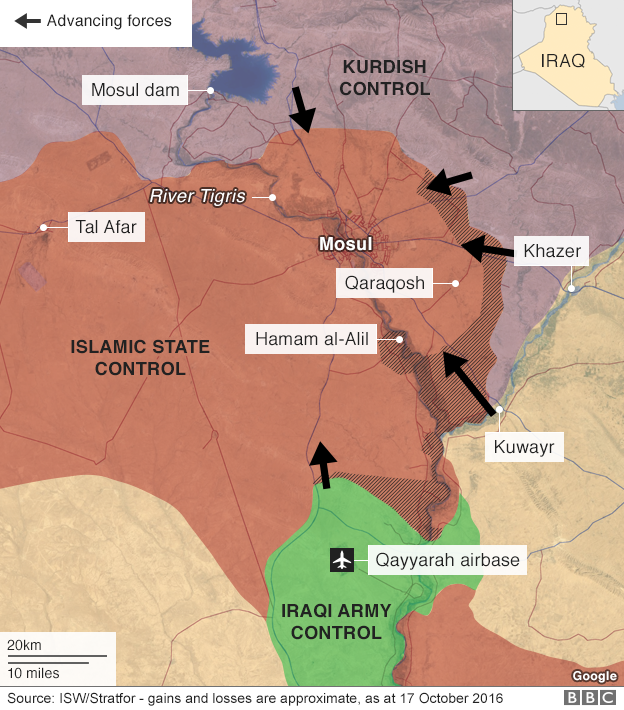
The BBC's Jonathan Beale, who is embedded with Iraqi army units moving north from the Qayyarah airbase towards Hamam al-Alil, reported on Tuesday morning that commanders were planning to push forwards another 4km (2.5 miles).
They recaptured 10 villages on the first day of the operation, but had another 70 to retake before reaching the city's outskirts, our correspondent added.
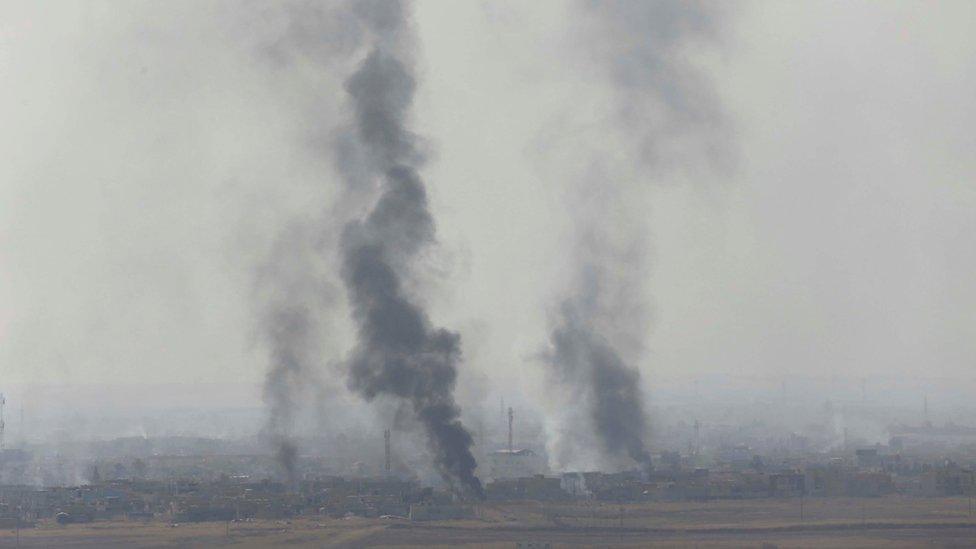
Smoke rose from the IS-held town of Bartella during clashes between troops and IS on Tuesday
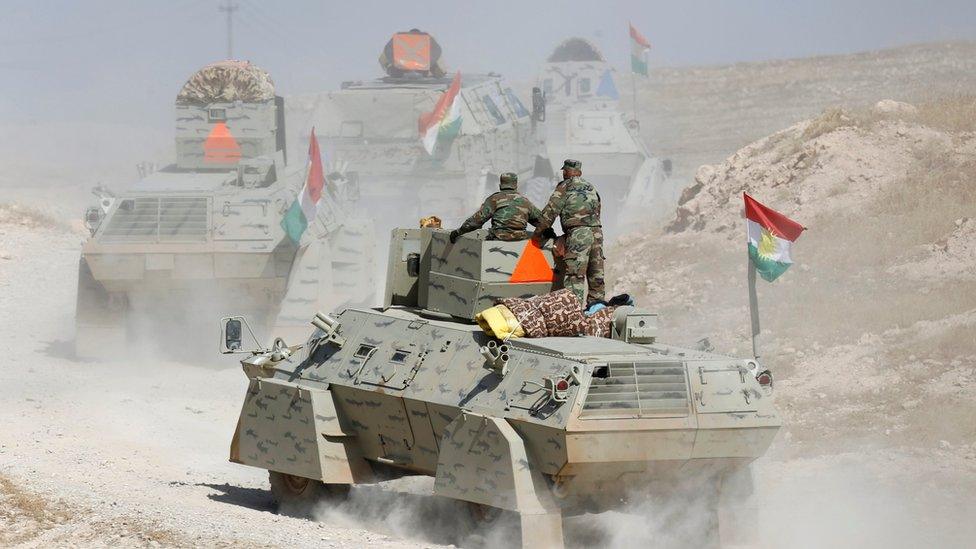
Kurdish fighters retook a number of villages east of Mosul on Monday
Coalition warplanes also carried out air strikes in Hamam al-Alil, destroying a water plant and health centre where IS militants had been based, an Iraqi military source said.
A Kurdish commander meanwhile said his forces were holding their positions after capturing a number of villages east of Mosul on Monday and seizing some 200 sq km (80 sq miles) of territory.
"The Iraqi army will now advance past our arenas of control," Col Khathar Sheikhan told the Associated Press news agency. "We have achieved our objectives."
Orla Guerin: "It could take months to drive the IS fighters from the city of Mosul"
Sunni tribal fighters also reported that an Iraqi soldier and three militants had been killed in an IS attack on the village of al-Nasir, near Qayyarah, involving a suicide car bombing.
IS said it had carried out 10 suicide attacks against pro-government forces advancing on Mosul on Monday. Kurdish officials said at least five of their fighters were killed in one incident.
The Mosul offensive is expected to take weeks, if not months, with the estimated 3,000 to 5,000 militants left in the city reportedly preparing by digging tunnels, rigging bridges with explosives, laying booby-traps and recruiting children as spies.
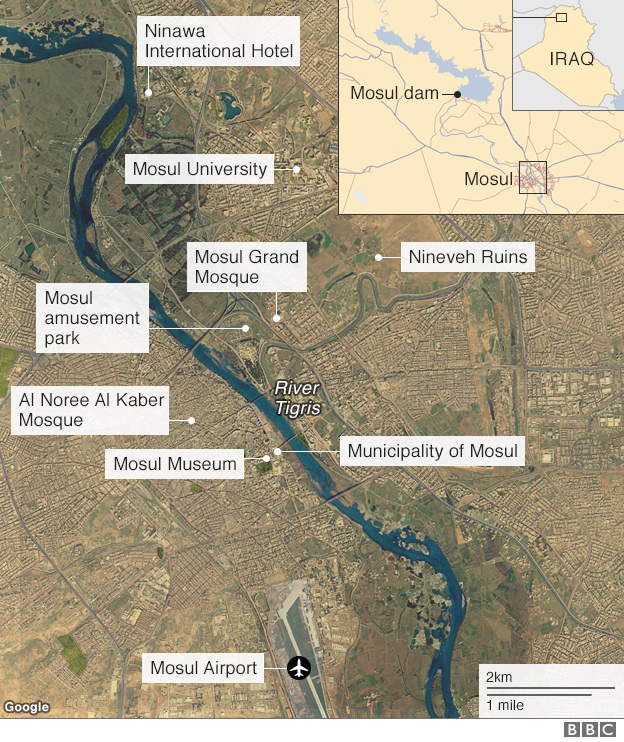

Are you in the region around Mosul? Are you from Mosul? Let us know about your experiences. Email haveyoursay@bbc.co.uk, external with your stories.
Please include a contact number if you are willing to speak to a BBC journalist. You can also contact us in the following ways:
·WhatsApp: +44 7525 900971
·Tweet: @BBC_HaveYourSay, external
·Send an SMS or MMS to +44 7624 800 100